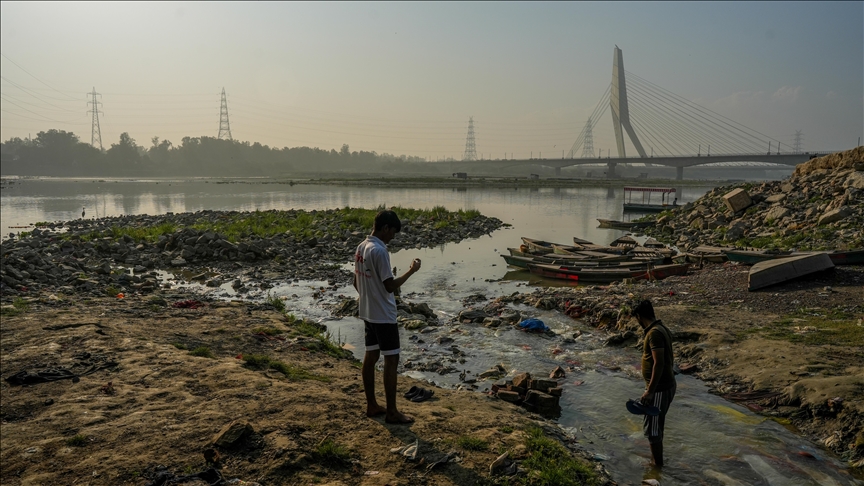FACTBOX – What is the Indus Waters Treaty that India suspended with Pakistan?
New Delhi put in abeyance the 1960 water-sharing agreement after an attack in Indian-administered Kashmir killed 26 people

- New Delhi put in abeyance the 1960 water-sharing agreement after an attack in Indian-administered Kashmir killed 26 people
- World Bank mediated the treaty that divides six rivers of the Indus Basin between the two countries- India received eastern Sutlej, Beas and Ravi rivers; Pakistan got control Indus, Jhelum, and Chenab rivers
- Permanent Indus Commission – a bilateral body comprising representatives from both India and Pakistan – provides mechanism for cooperation and conflict resolution
ISTANBUL
India on Wednesday unilaterally suspended a decades-old bilateral water treaty with neighboring Pakistan, commonly known as the Indus Waters Treaty.
New Delhi’s decision to put in abeyance the 1960 agreement was one of several measures it took against Islamabad in the wake of a Tuesday attack by unidentified gunmen on tourists in Indian-administered Kashmir, killing 26 people.
Pakistani officials claim India cannot suspend the 1960 treaty unilaterally, noting that the World Bank is a key stakeholder.
The treaty
The water-sharing agreement between the longtime nuclear rivals was brokered by the World Bank in September 1960. The treaty fixed the rights and obligations of both countries concerning the use of waters of the Indus River system.
The agreement divided six rivers of the Indus Basin between the two countries.
While India received the three eastern rivers: Sutlej, Beas, and Ravi; Pakistan was assigned control over the three western rivers – Indus, Jhelum, and Chenab.
Permanent Indus Commission
It is for the first time since the treaty was signed that a party has stepped out of the cooperative framework.
There exists the Permanent Indus Commission – a bilateral body comprising representatives from both India and Pakistan – providing mechanism for cooperation and conflict resolution.
Under this mechanism, the two sides are required to meet at least once every year, alternately in India and Pakistan.
In 1989, Pakistan and India signed an agreement in which India would provide advanced data on all rivers entering Pakistan from July 1 to Oct. 10 every year.
Among the ongoing disputes is disagreement over design features of India's two hydropower power projects, Ratle and Kishanganga, on Chenab and Jhelum rivers, respectively.
While Pakistan says the planned hydropower dams will cut flows of water for irrigated agriculture, India insists its projects comply with the treaty’s stipulations.
Pakistan took the matter to The Hague-based Permanent Court of Arbitration, but India rejected the PCA’s jurisdiction.
Last year, India formally sought a review and modification of the agreement but Islamabad called the pact a “gold standard” of bilateral treaties on water sharing and stressed Pakistan was fully committed to its implementation.
Arch-rivals
The much-needed treaty was the result of an international intervention following heightened tensions over water sharing that had begun soon after Partition in 1947.
The two neighbors have long been embroiled in a slew of air and land disputes, primarily over the former princely state of Jammu and Kashmir.
Anadolu Agency website contains only a portion of the news stories offered to subscribers in the AA News Broadcasting System (HAS), and in summarized form. Please contact us for subscription options.







